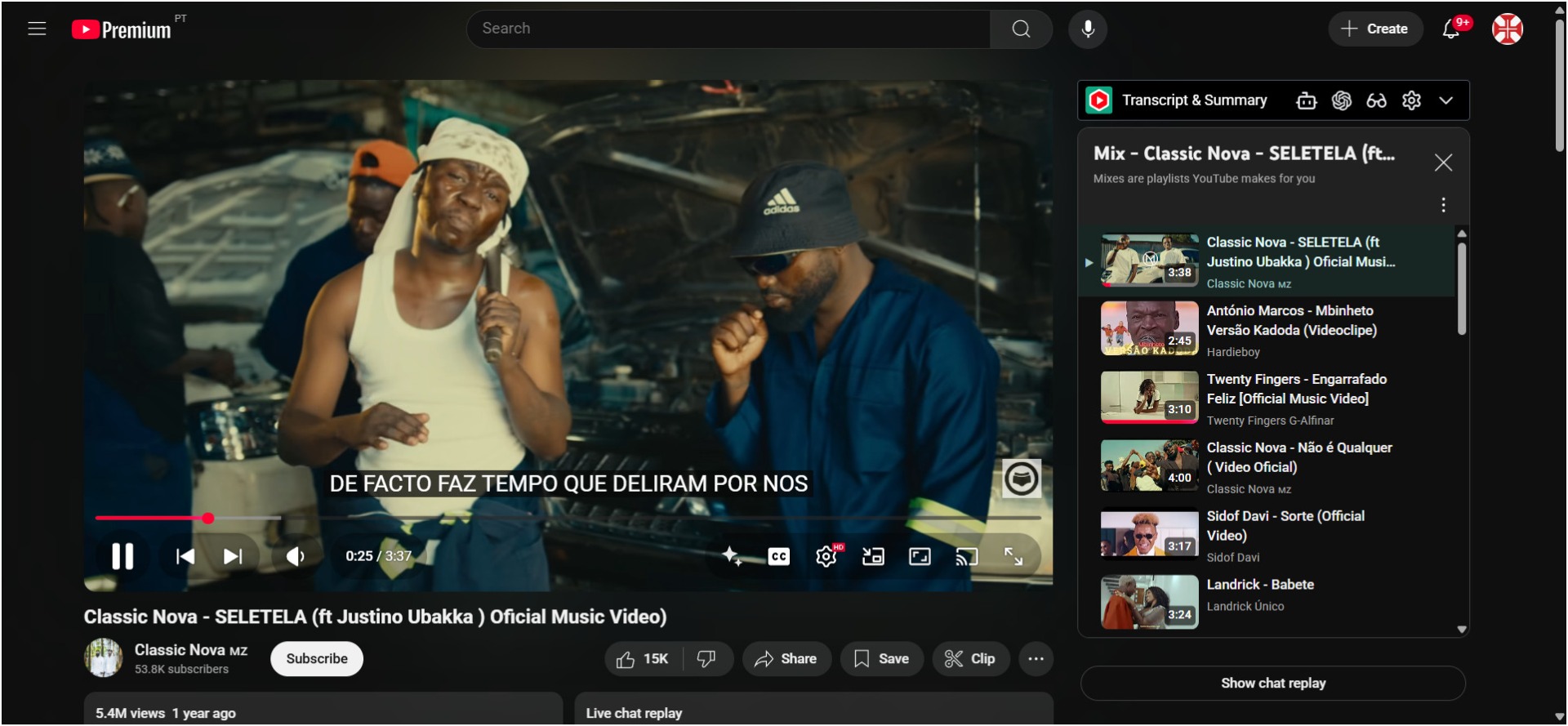mozambique music
Classic Nova: Mozambique's Musical Legacy
Classic Nova is a notable Mozambican musical act, recognized for its contributions to the country's contemporary music scene, blending traditional Mozambican rhythms with modern influences. Likely originating from Nampula or Maputo, this artist or group has gained attention for its vibrant sound, making it a significant player in the Lusophone African music landscape. This profile, crafted on September 06, 2025, at 05:41 AM WEST, explores its background, musical career, achievements, and cultural impact, with a critical perspective on its recognition and influence.
Background
Specific details about Classic Nova's formation, individual members (if a group), or exact origins are not widely documented in the provided web results, but its name suggests a nod to classic Mozambican music styles, possibly linked to the marrabenta or pandza traditions. The web result from Apple Music (web:15) lists Classic Nova as an artist with singles like "Seletela" (feat. Justino Ubakka) and "Perdoa" (feat. Tamyris Moiane), indicating a Maputo-based or nationally recognized presence. Given Mozambique's ethnic diversity, Classic Nova likely draws from Changana, Makua, or other cultural roots, with influences from languages like Xichangana or Emakhuwa. Its emergence aligns with the country's post-independence music renaissance, possibly in the 2010s or early 2020s.
Musical Career
Classic Nova's discography reflects a fusion of traditional Mozambican sounds with contemporary genres, as seen in its recorded works:
"Seletela" (feat. Justino Ubakka): A 2025 single on Apple Music, blending local rhythms with modern production, showcasing a collaborative spirit.
"Perdoa" (feat. Tamyris Moiane): Another 2025 release, featuring the rising star Tamyris Moiane, highlighting emotional depth and vocal harmony.
Other Works: Singles like "Cacata" (feat. Classic Nova) and "Minha Mulher" suggest a catalog of love-themed tracks, inferred from Apple Music listings (web:15).
These tracks, available on platforms like Apple Music and potentially YouTube, indicate a focus on accessible, radio-friendly music. His/her/their career likely involves live performances at local festivals (e.g., Ngoma Mozambique) and collaborations with artists like Justino Ubakka and Tamyris Moiane, reflecting a growing network in the Mozambican music industry.
Achievements
Rising Popularity: The inclusion of "Seletela" and "Perdoa" on Apple Music (web:15) suggests a growing fan base, with streams indicating commercial success in 2025.
Collaborative Success: Partnerships with established artists like Tamyris Moiane enhance his/her/their visibility, positioning Classic Nova as a collaborative force.
Media Presence: Featured on Apple Music and potentially other platforms, reflecting recognition within Mozambique's music community.
Cultural Impact
Classic Nova contributes to Mozambique's cultural narrative by blending traditional rhythms—possibly marrabenta or pandza—with modern pop or Afrobeat elements. The collaboration with Tamyris Moiane, a young Changana artist, suggests a bridge between generations, celebrating Mozambican identity through love and community themes. Tracks like "Seletela" and "Perdoa" likely resonate with urban youth and the diaspora, aligning with the country's push to export its music globally.
However, the focus on mainstream collaborations may underrepresent rural traditions tied to languages like Emakhuwa, Cisena, or Echuwabo, reflecting a commercial bias toward Maputo's urban market.
Critical Perspective
Media narratives around Classic Nova, inferred from its Apple Music presence, likely portray it as a success story, emphasizing collaborations and streaming stats to boost Mozambique's cultural image. This focus may downplay the artist's early struggles, such as limited resources outside Maputo, or the challenges of breaking into a competitive industry. The association with high-profile artists like Tamyris Moiane suggests a strategic push for visibility, potentially prioritizing marketability over grassroots authenticity.
The lack of detailed biographical data or recent updates (post-2023 web results) raises questions about whether its prominence is sustained by past releases or amplified for tourism and cultural funding, a common tactic in developing nations. The emphasis on contemporary sounds might also marginalize the rich diversity of traditional Mozambican genres.
Conclusion
Classic Nova is a rising force in Mozambican music, blending traditional rhythms with modern influences to create a sound that captivates a growing audience. From "Seletela" to "Perdoa," its journey reflects talent, cultural pride, and innovation. While its achievements are promising, a critical view suggests exploring the full scope of its story, including the challenges of Mozambique's music industry. For the latest on its career, visit music.apple.com or let me know if you'd like a real-time search for recent developments!
